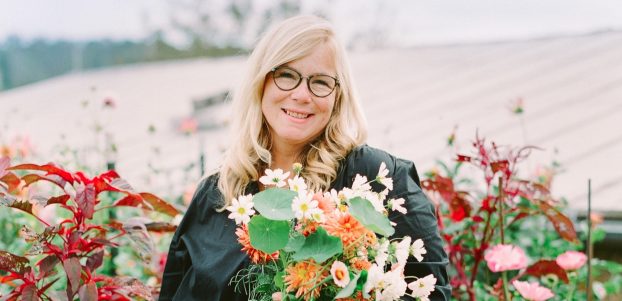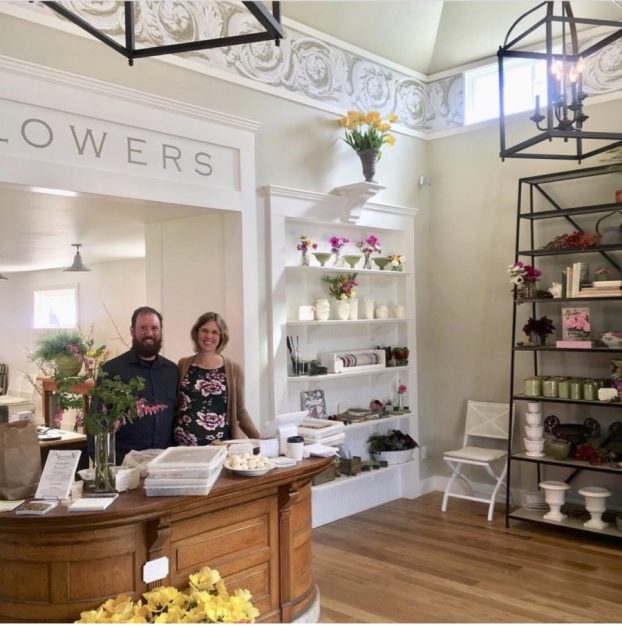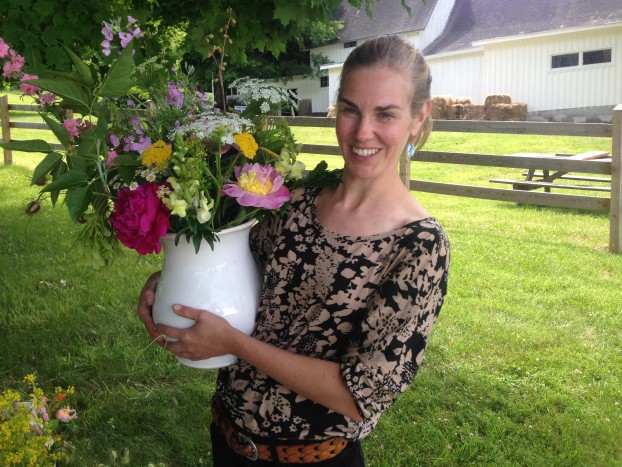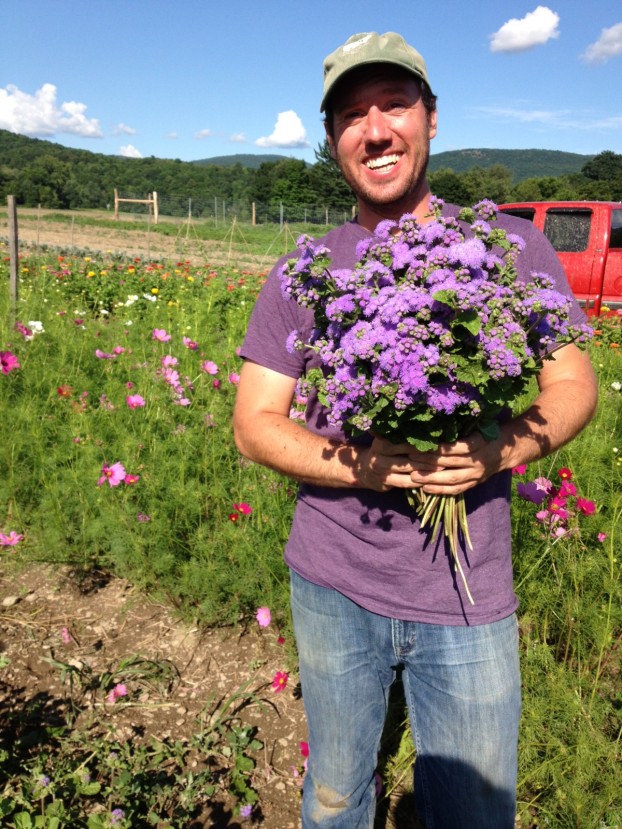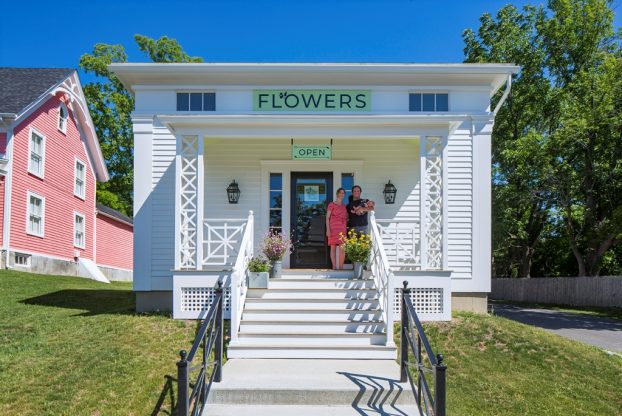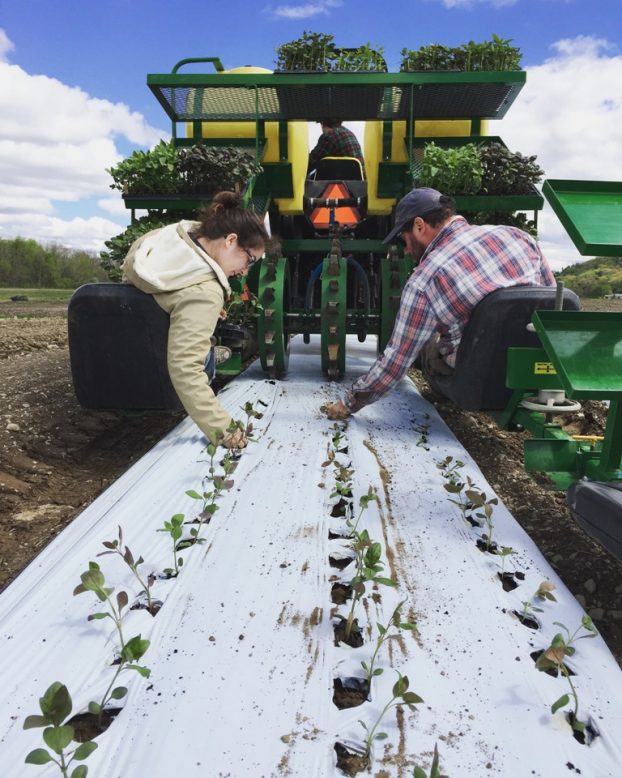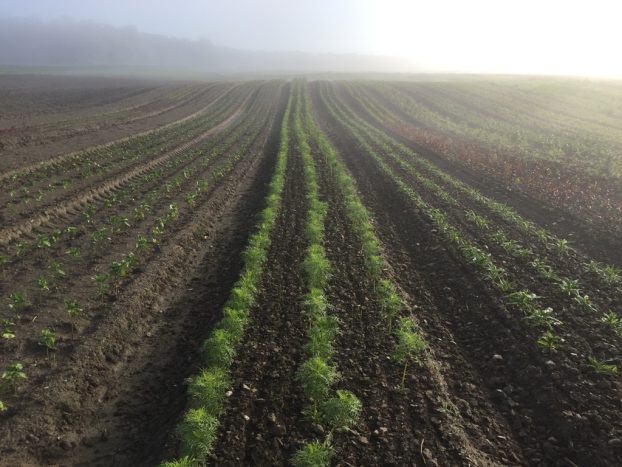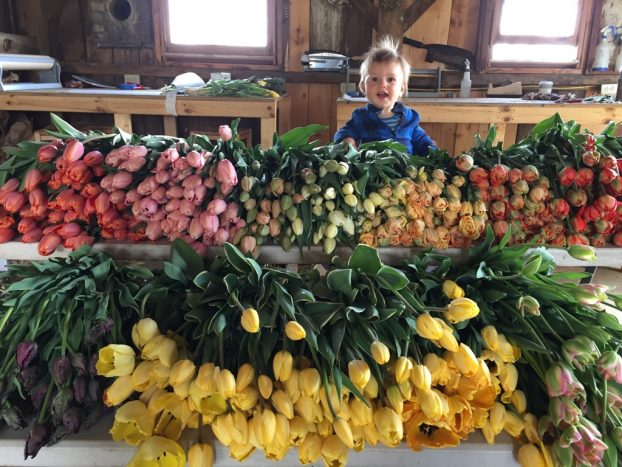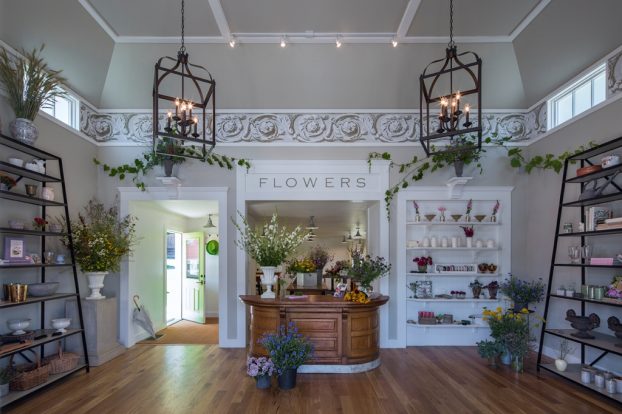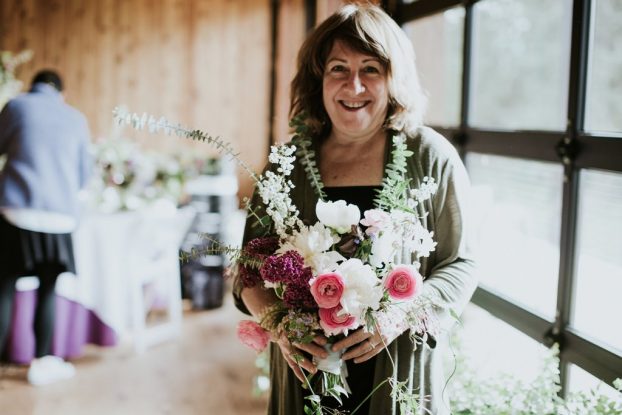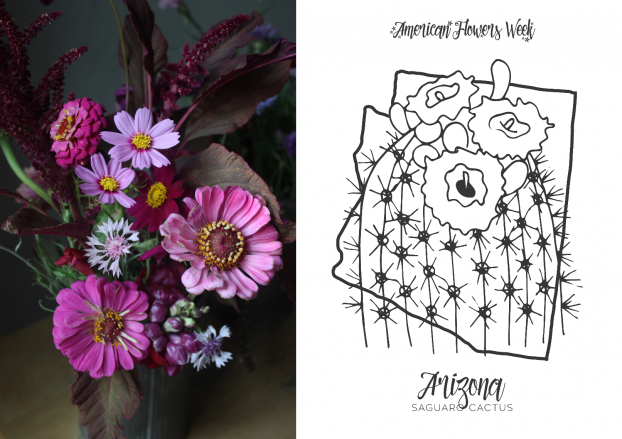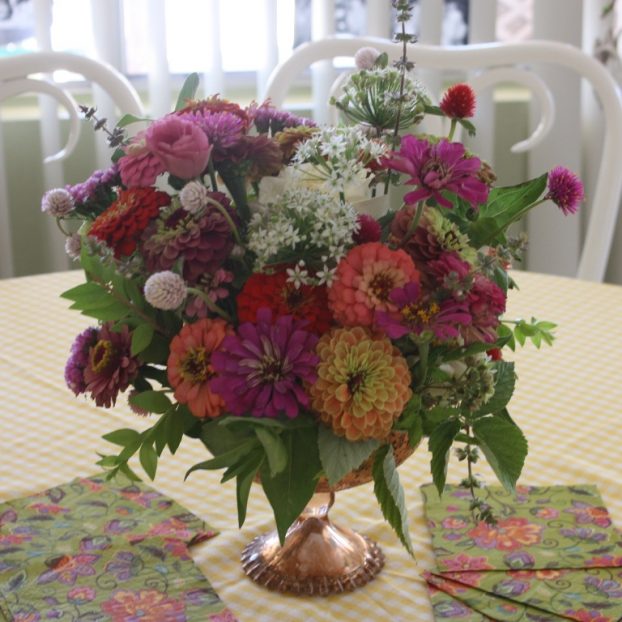Podcast: Play in new window | Download
Subscribe: Apple Podcasts | Podcast Index | RSS | More
It’s great to be back with you today — and to share another inspiring and uplifting conversation about the healing power of plants and the ability of flowers to nurture us, body and soul.
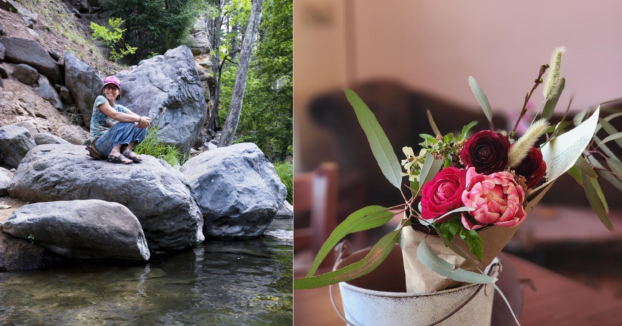
My guest today is botanist-turned-farmer-florist Kate Watters of Arizona’s Wild Heart Farm. I first met Kate several years ago through the community of florists and flower farmers in Arizona, where I often visited my parents who were living outside of Phoenix.
Kate and I connected through her frequent collaborator, Terri Schuett, owner of Happy Vine Flowers, a Prescott Valley area florist who is also part of the Slow Flowers Movement. The women produced a beautiful styled shoot that we published in Florists Review in December 2019, and I’ve secretly always wanted them to team up for a desert-inspired botanical couture piece for American Flowers Week!
READ: The Desert as Floral Canvas
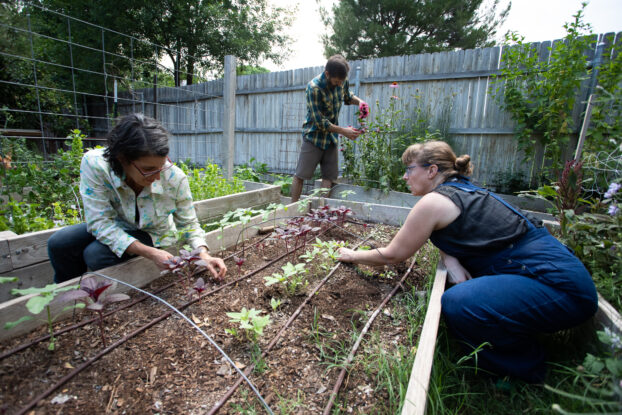
Kate has an extensive background in botany, ecological restoration and agriculture, coming to floristry while establishing flower and herb gardens at Orchard Canyon on Oak Creek, a 10-acre destination resort in Sedona.
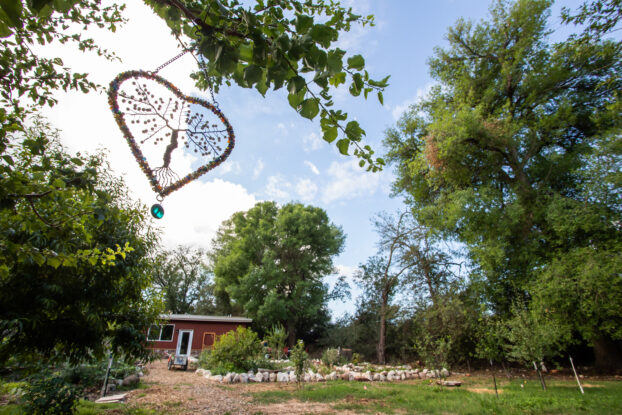
She transitioned to flower farming full time when she and her partner Mike Knapp found a unique property in Rimrock. They knew it could become the heart and home for both of their personal and professional endeavors. As Kate says, after 20 years in the field and wilds of botany and conservation, she wanted nothing more than to grow fields of flowers.
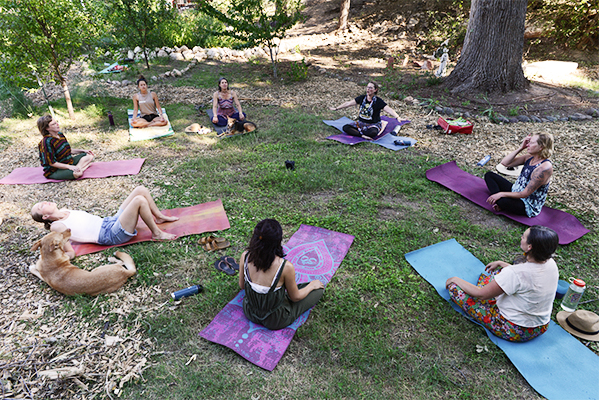
Now, at Wild Heart Farm, Kate calls her approach to plant-based products and programs ‘Flower Healing.’ “Plants have so many qualities that bolster emotional and mental wellness,” she explains. I invited Kate to share more in today’s conversation. The second part of this episode features a 12-minute video tour of Wild Heart Farm, which Kate filmed to give us a closer look at this special destination in the high desert.
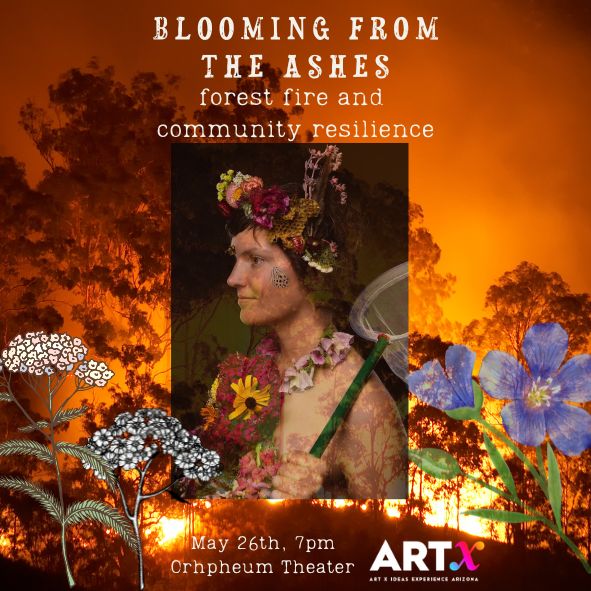
Learn more about BLOOMING FROM THE ASHES: FOREST FIRE AND COMMUNITY RESILIENCE, Wild Heart Farm at ArtX on May 26th, 2023
Follow Wild Heart Farm on Facebook and Instagram
This week’s News
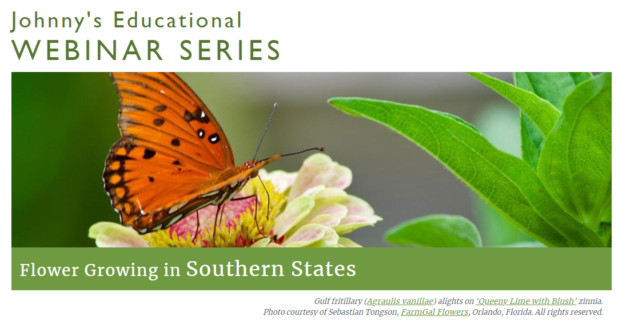
And a reminder that tomorrow is our free webinar for Southern States flower growers. You’re invited to Join Slow Flowers +Johnny’s Selected Seeds at attend, tomorrow, April 27th (2 pm Pacific/5 pm Eastern). I’ll be co-hosting the session with Johnny’s Seeds’ Flower Product Manager Hillary Alger for a discussion on what it means to grow flowers in the challenging climatic conditions of the southern United States.
Our guest panel of experienced Slow Flowers members are cut-flower growers from Florida, North Carolina, and Texas. We’ll hear their farming stories firsthand and discuss regional growing challenges, lessons learned, and their favorite varieties. You’ll meet and learn from them:
Rita Anders, Cuts of Color, Weimar, Texas
Eileen Tongson, FarmGal Flowers, Orlando, Florida
Taij & Victoria Cotten, Cotten Picked, Pittsboro, North Carolina
Julia Keel, Full Keel Farm, Fort White, Florida
The webinar is free and you can find the sign up link below. I hope to see you there!
Thank you to our Sponsors
This show is brought to you by Slowflowers.com, the free, online directory to more than 850 florists, shops, and studios who design with local, seasonal and sustainable flowers and to the farms that grow those blooms. It’s the conscious choice for buying and sending flowers.
Thank you to our lead sponsor, Farmgirl Flowers. Farmgirl Flowers delivers iconic burlap-wrapped bouquets and lush, abundant arrangements to customers across the U.S., supporting U.S. flower farms by purchasing more than $10 million dollars of U.S.-grown fresh and seasonal flowers and foliage annually. Discover more at farmgirlflowers.com.
Thank you to sponsor CalFlowers, the leading floral trade association in California, providing valuable transportation and other benefits to flower growers and the entire floral supply chain in California and 48 other states. The Association is a leader in bringing fresh cut flowers to the U.S. market and in promoting the benefits of flowers to new generations of American consumers. Learn more at cafgs.org.
Thank you to Store It Cold, creators of the revolutionary CoolBot, a popular solution for flower farmers, studio florists and farmer-florists. If you watch the video tour that Kate filmed for us, you’ll see a good example of her CoolBot. Save $1000s when you build your own walk-in cooler with the CoolBot and an air conditioner. Don’t have time to build your own? They also have turnkey units available. Learn more at storeitcold.com.
Thank you to Red Twig Farms. Based in Johnstown, Ohio, Red Twig Farms is a family-owned farm specializing in peonies, daffodils, tulips and branches, a popular peony-bouquet-by-mail program and their Spread the Hope Campaign where customers purchase 10 tulip stems for essential workers and others in their community. Learn more at redtwigfarms.com.
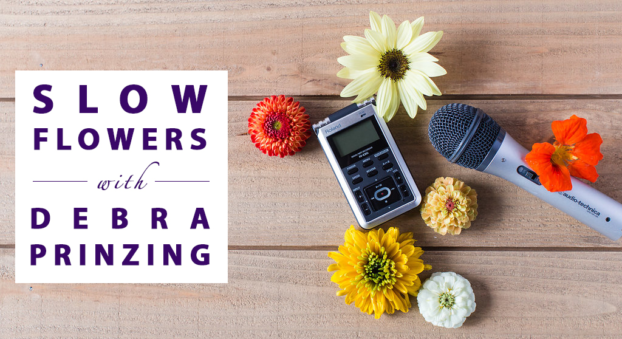
Thanks so much for joining me today! The Slow Flowers Podcast is a member-supported endeavor, downloaded more than one million times by listeners like you. Thank you for listening, commenting and sharing – it means so much. As our movement gains more supporters and more passionate participants who believe in the importance of our domestic cut flower industry, the momentum is contagious. I know you feel it, too. If you’re new to our weekly Show and our long-running Podcast, check out all of our resources at SlowFlowersSociety.com
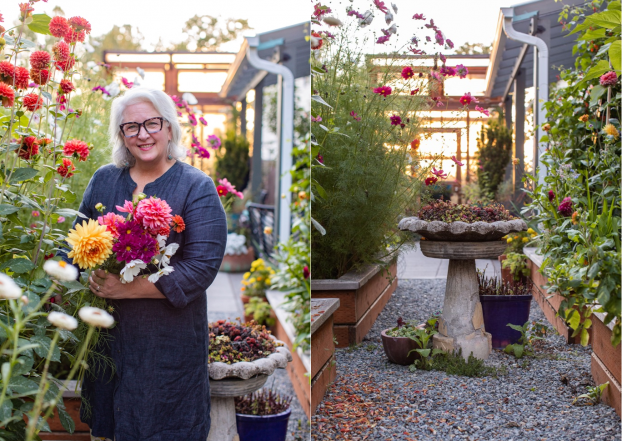
I’m Debra Prinzing, host and producer of the Slow Flowers Show & Podcast. The Slow Flowers Podcast is engineered and edited by Andrew Brenlan. The content and opinions expressed here are either mine alone or those of my guests alone, independent of any podcast sponsor or other person, company or organization. Next week, you’re invited to join me in putting more Slow Flowers on the table, one stem, one vase at a time. Thanks so much for joining us today and I’ll see you next week!
Music credits:
Drone Pine; Falaal; Turning on the Lights; Gaena
by Blue Dot Sessions
http://www.sessions.blue
Lovely
by Tryad
http://tryad.bandcamp.com/album/instrumentals
http://creativecommons.org/licenses/by-sa/3.0/
In The Field
audionautix.com










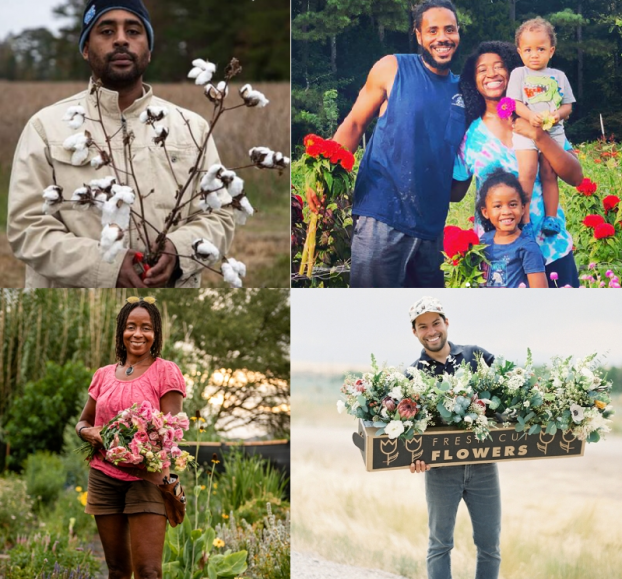
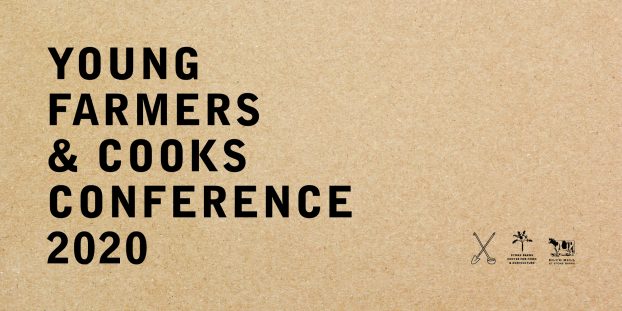
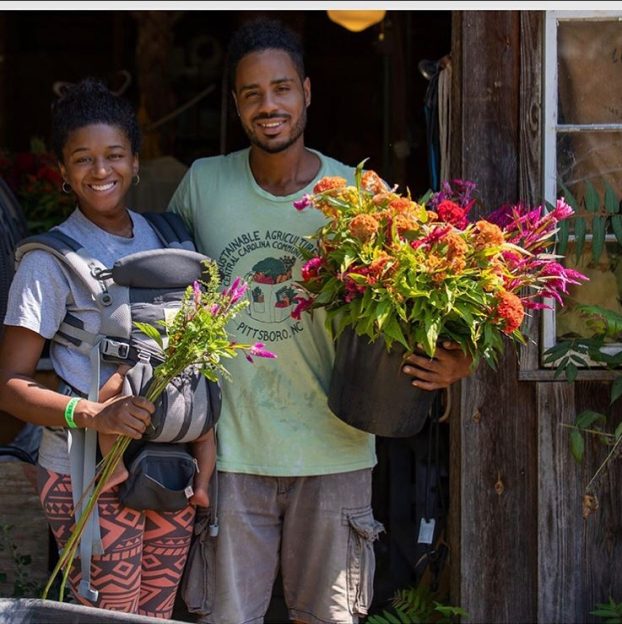
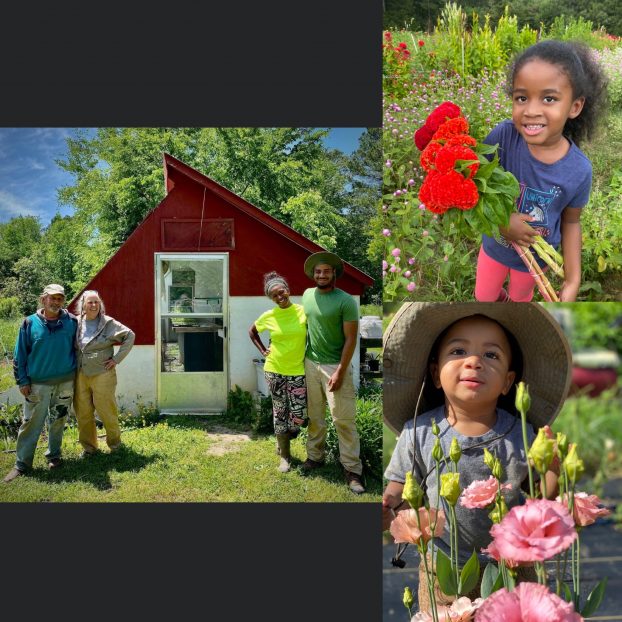
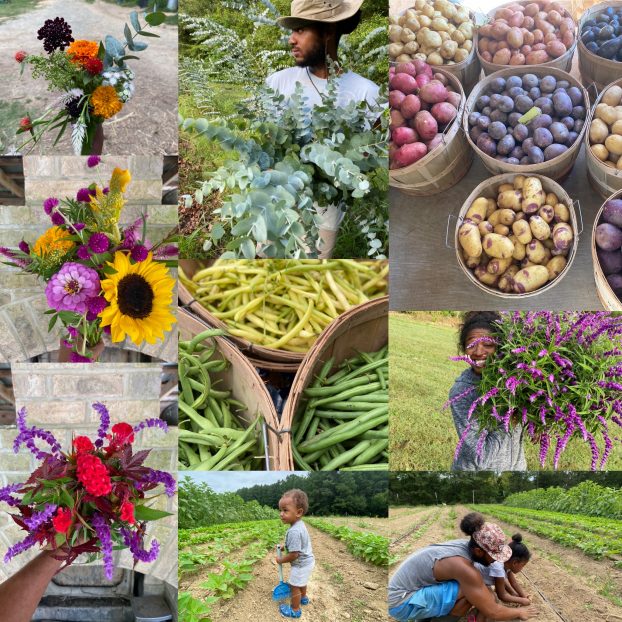

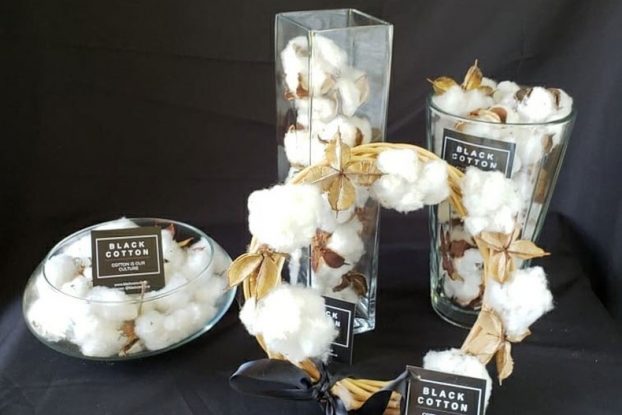
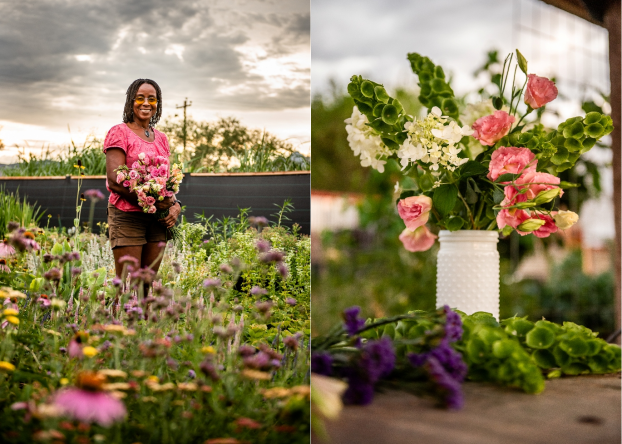
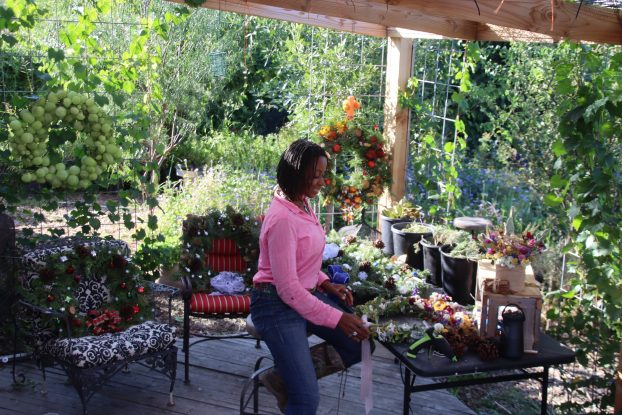
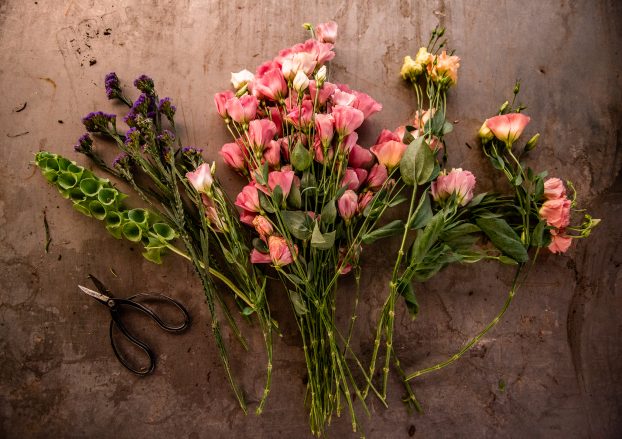
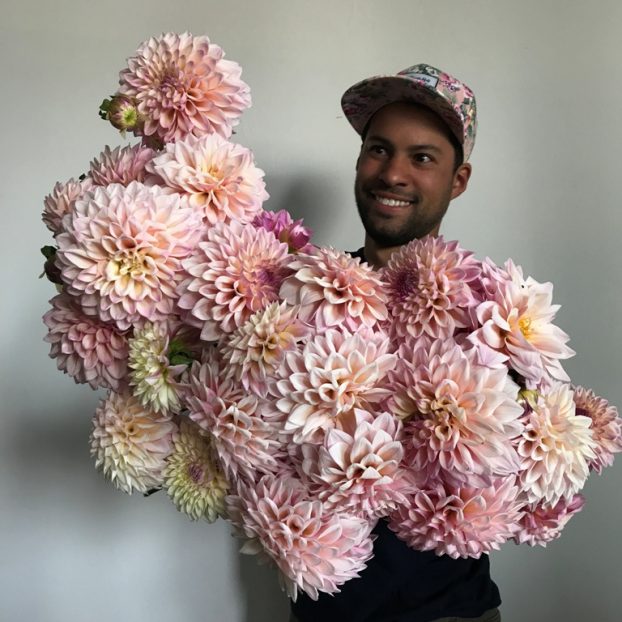
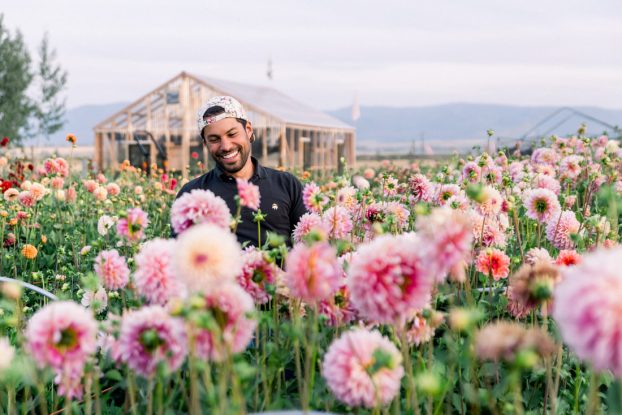
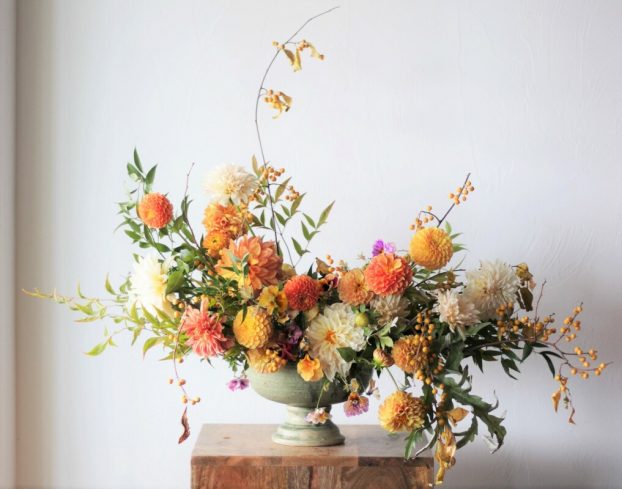
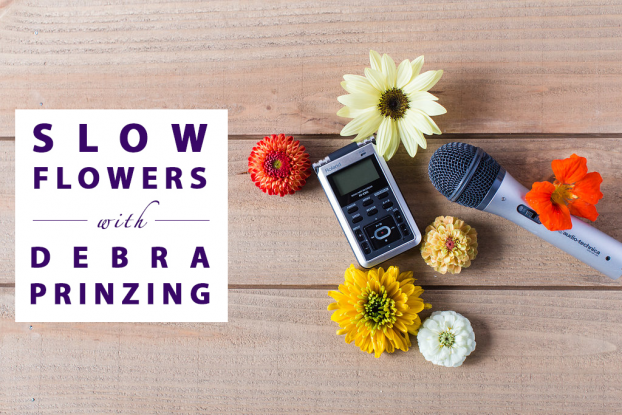
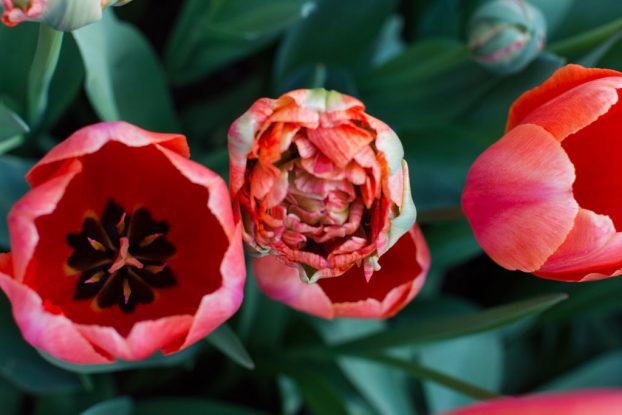


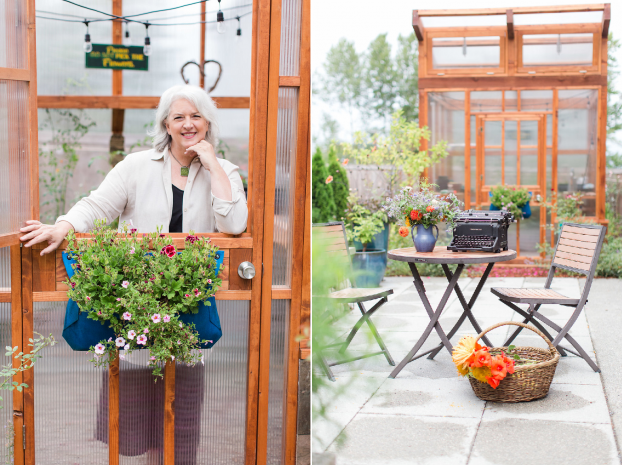
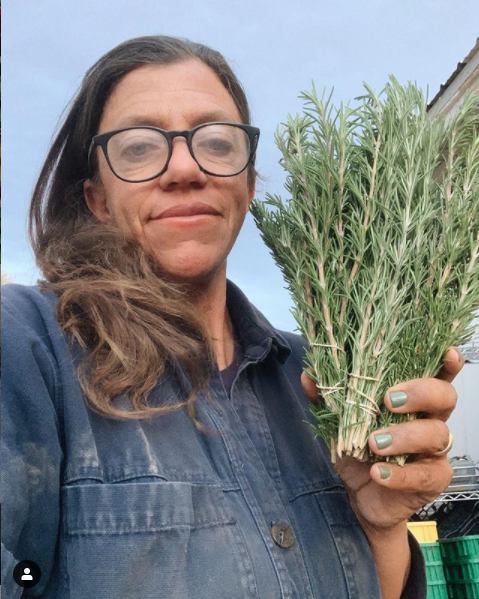
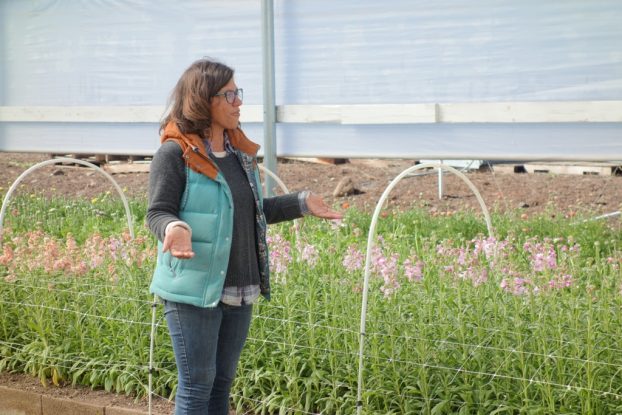
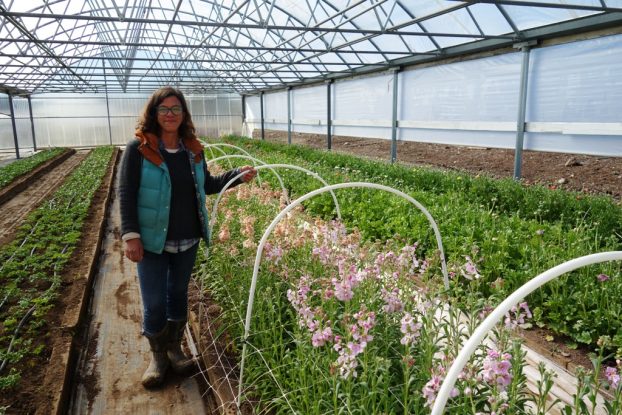
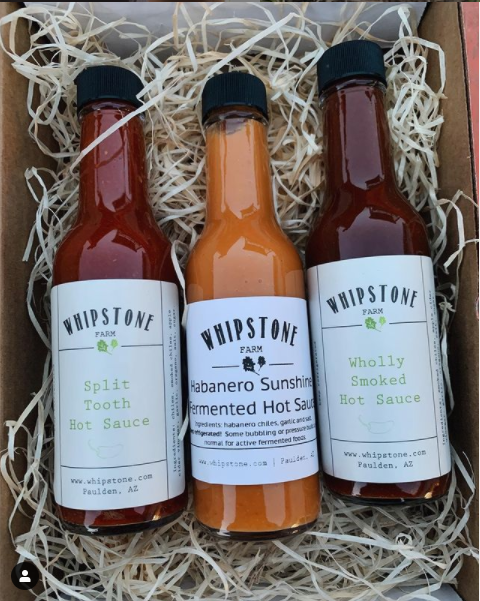
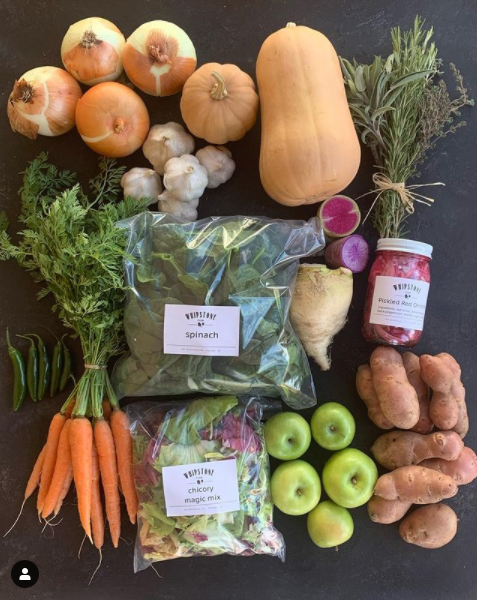
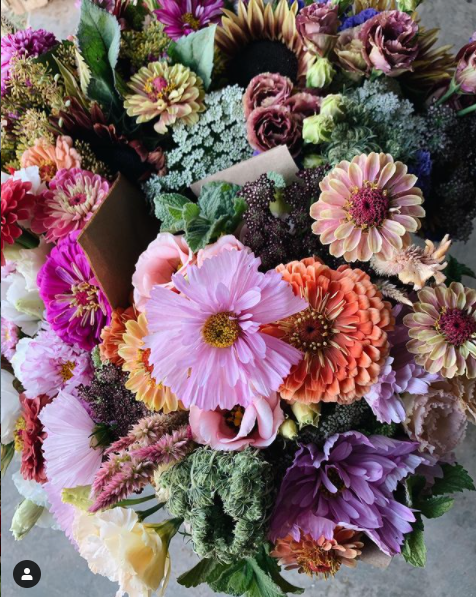
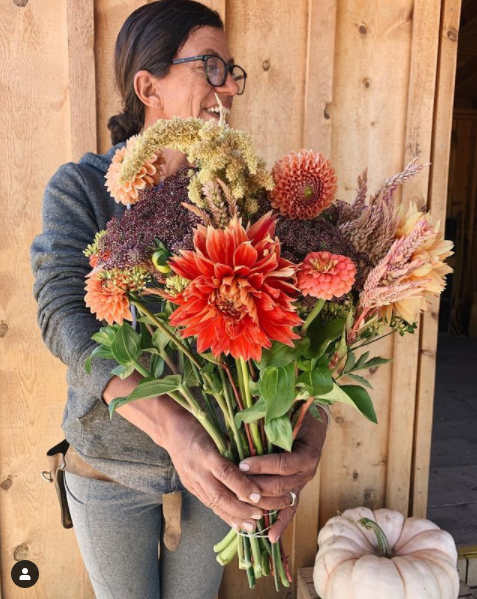
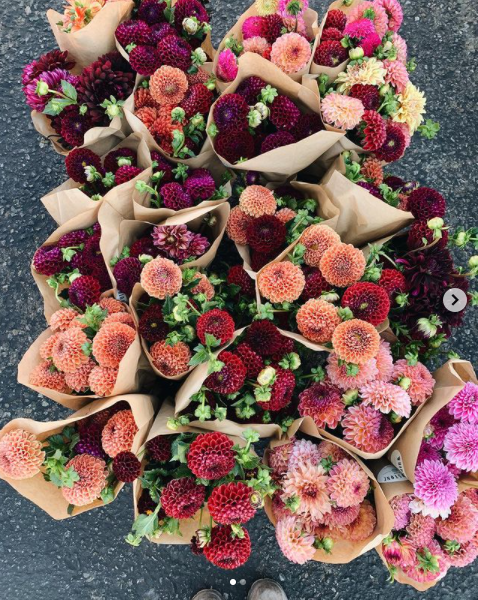
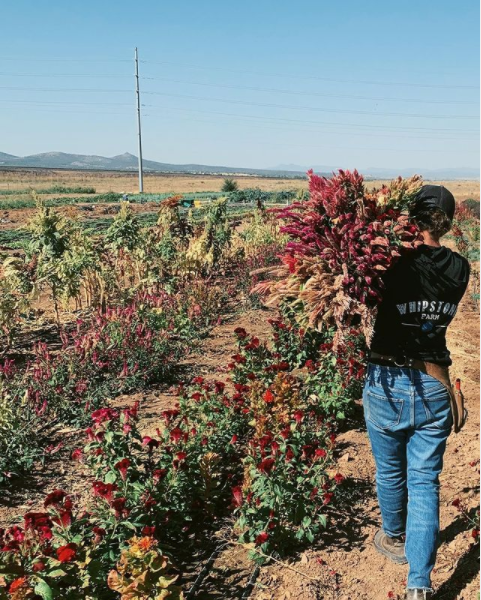
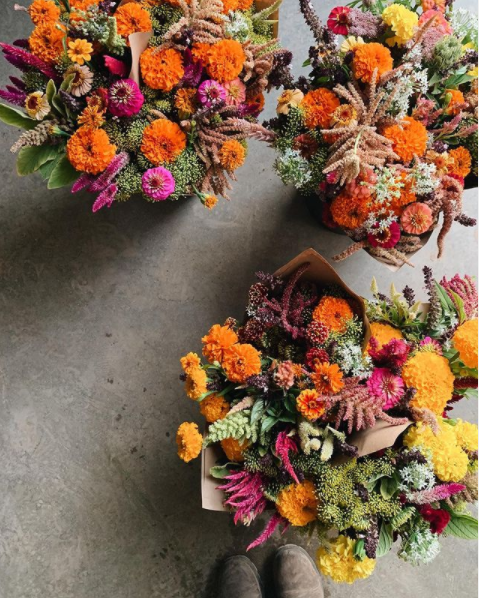
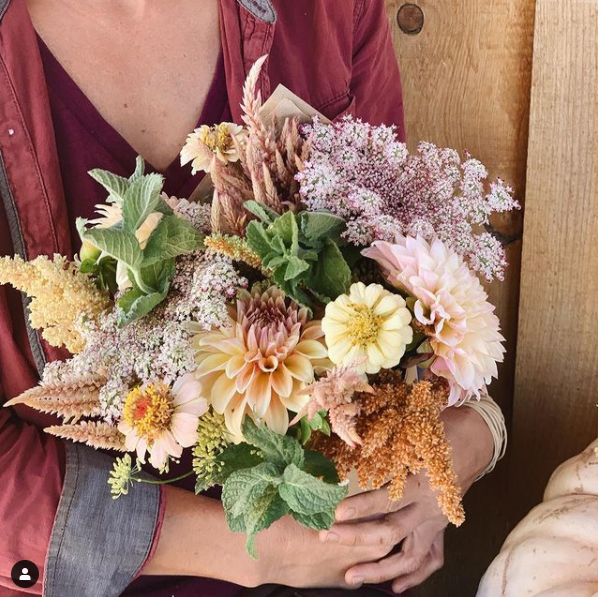
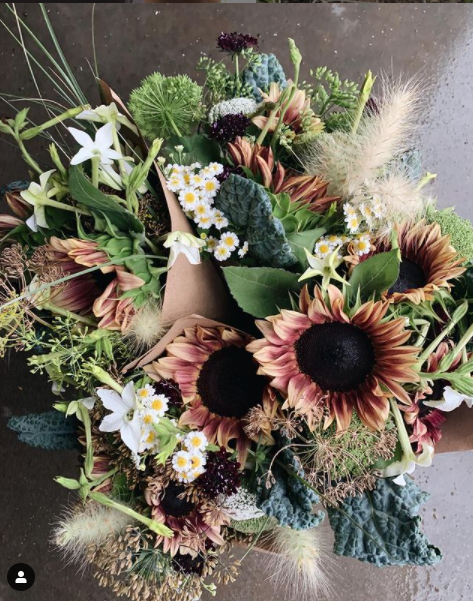
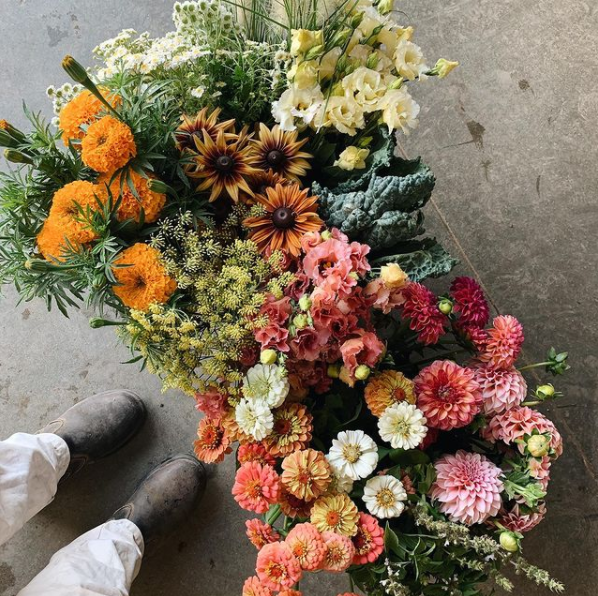
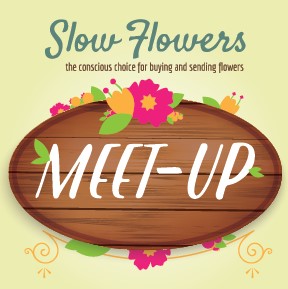
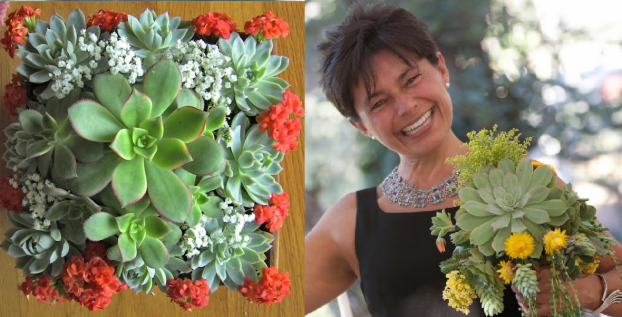

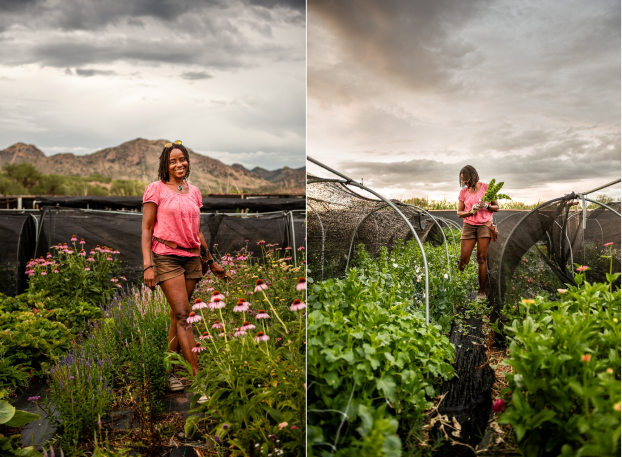

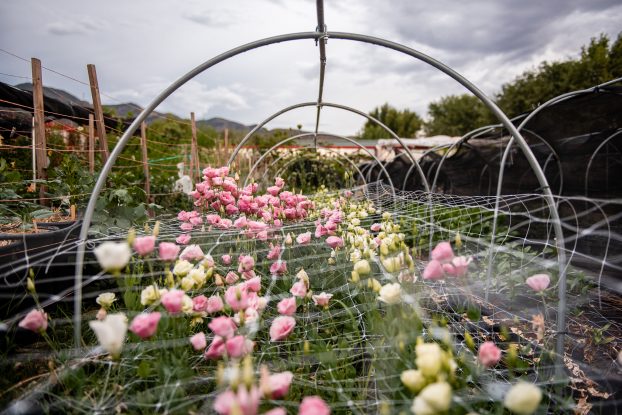
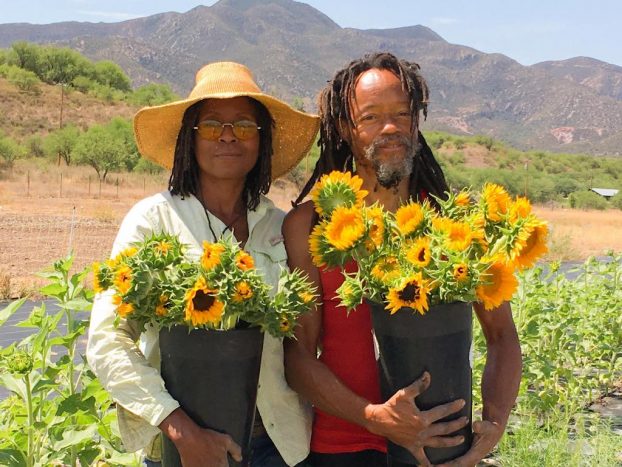
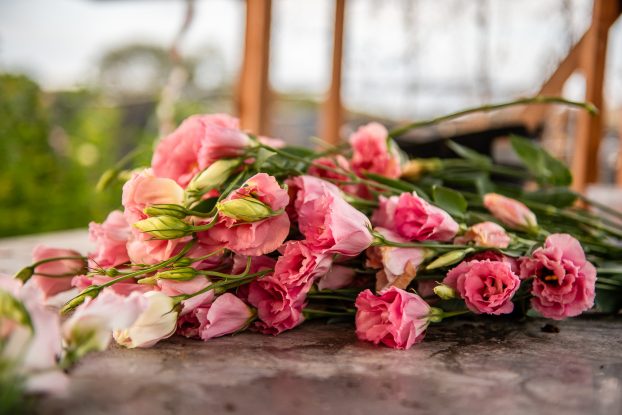
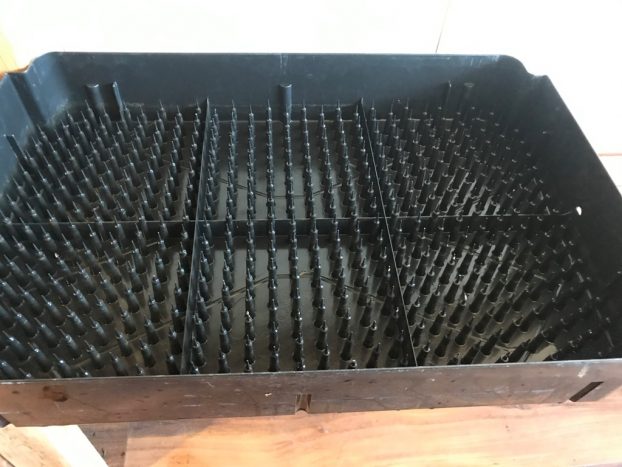
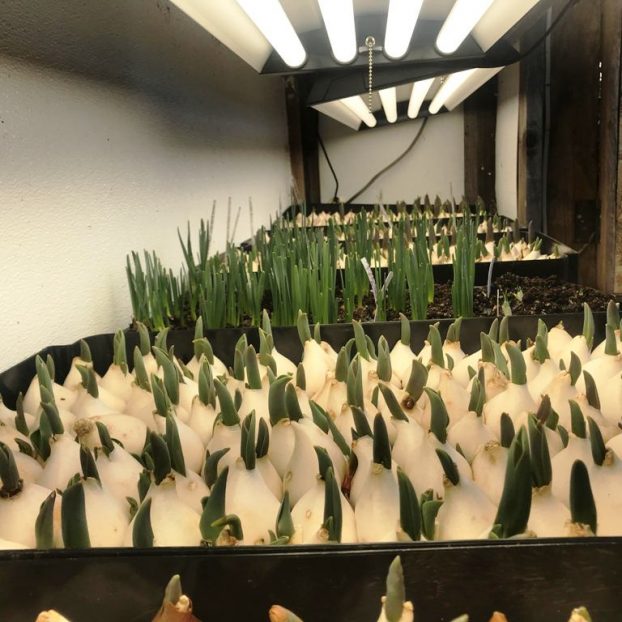
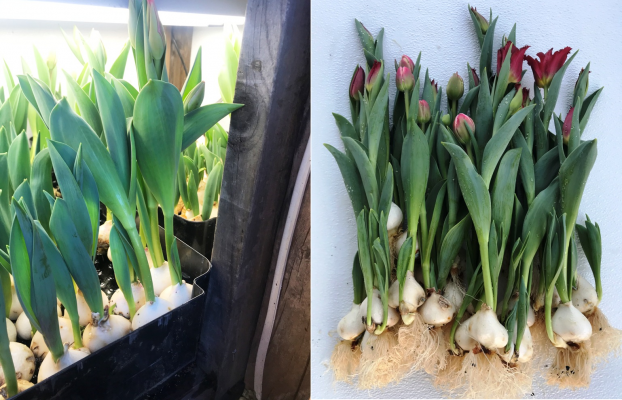

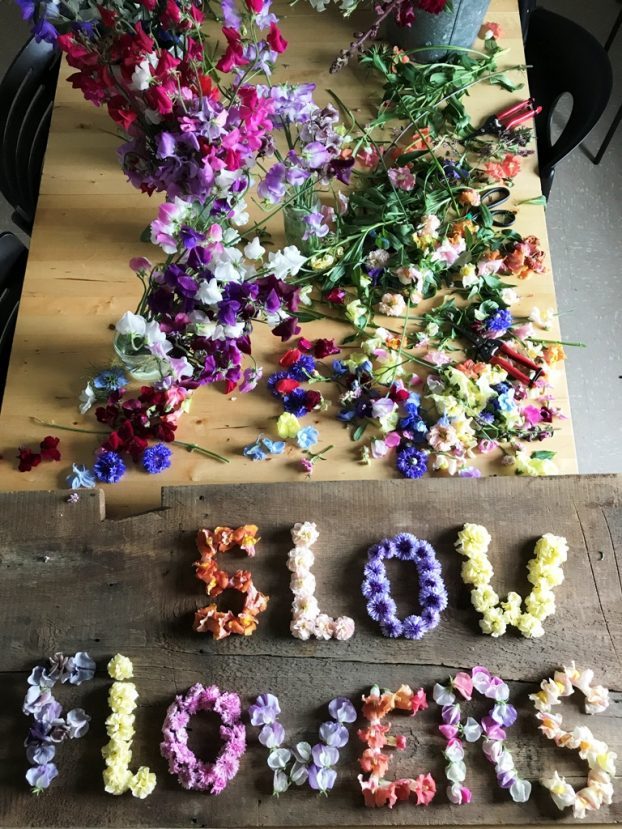
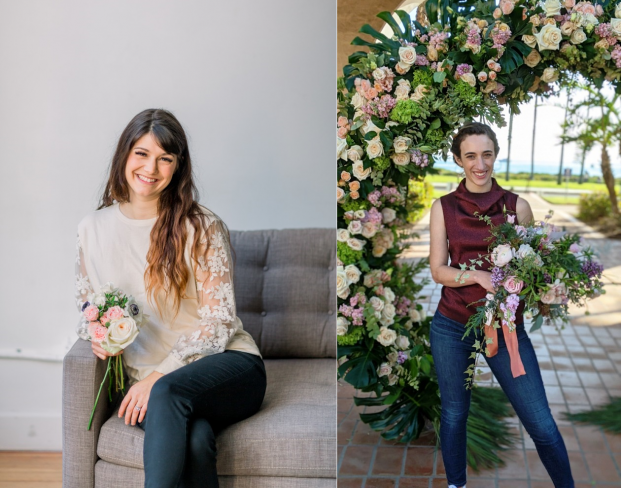
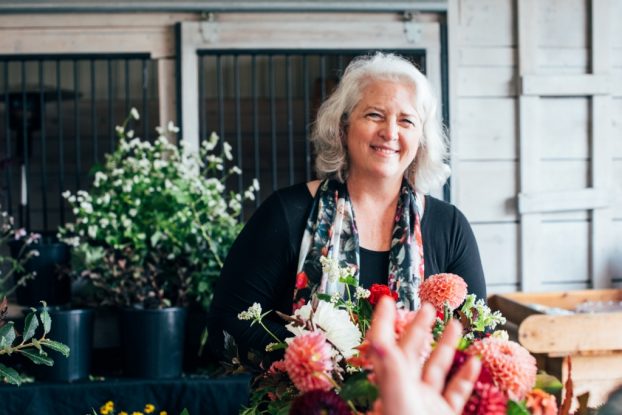
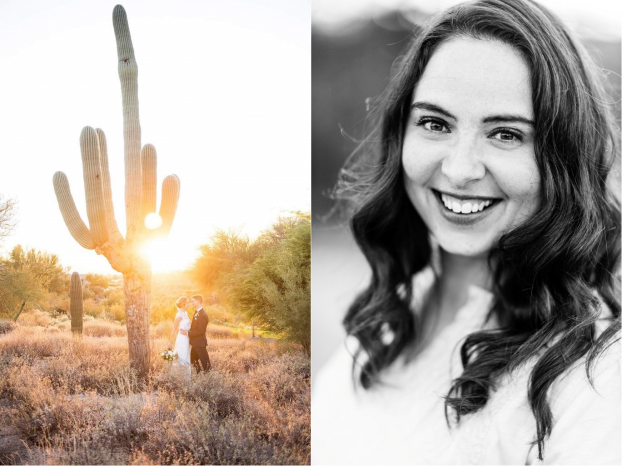
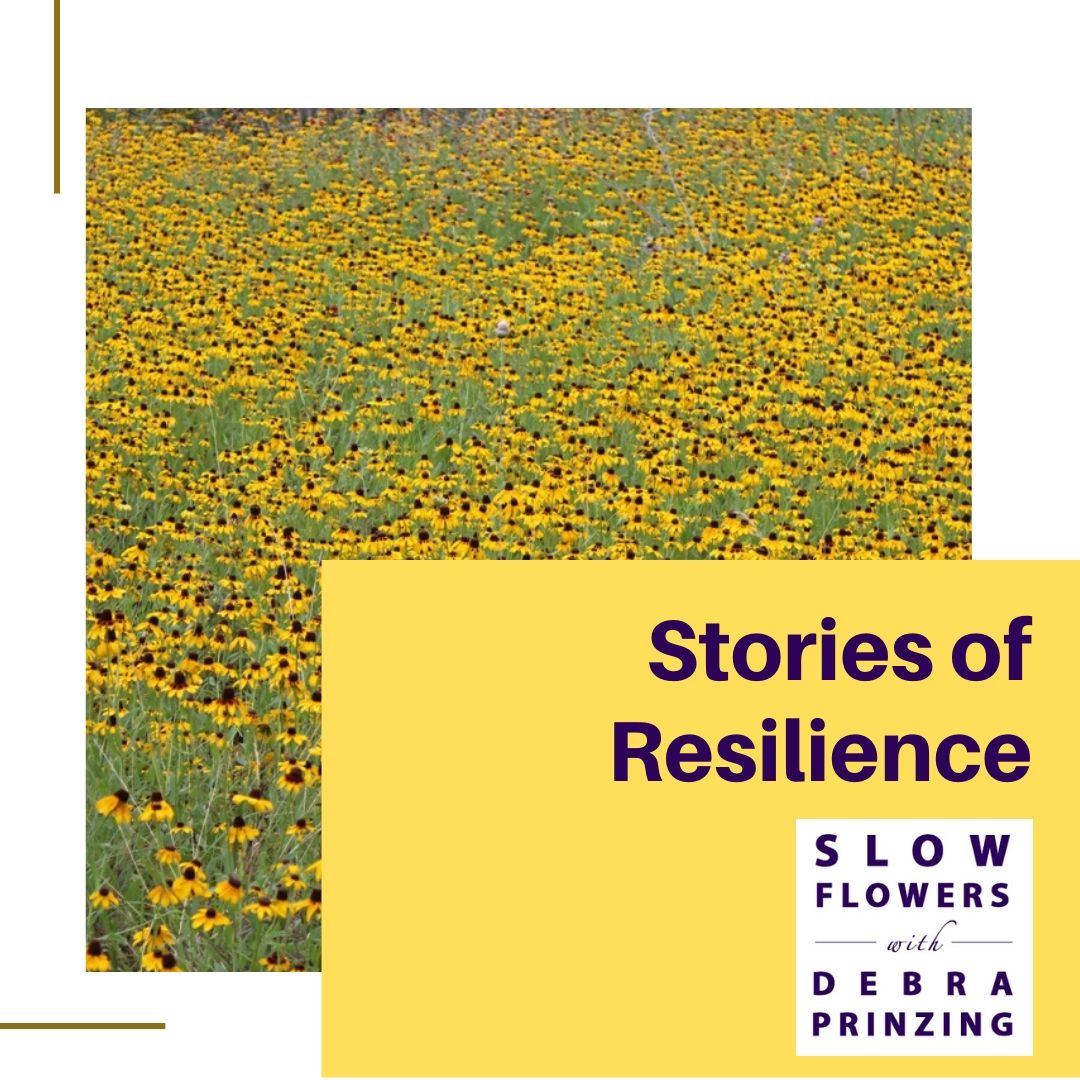 But first, our bonus series here on the Slow Flowers Podcast continues with our next installment of Stories of Resilience. I believe that now, more than ever, the message of sustainability and seasonal and locally-available flowers is top of mind — among consumers, flower farmers and florists.
But first, our bonus series here on the Slow Flowers Podcast continues with our next installment of Stories of Resilience. I believe that now, more than ever, the message of sustainability and seasonal and locally-available flowers is top of mind — among consumers, flower farmers and florists. 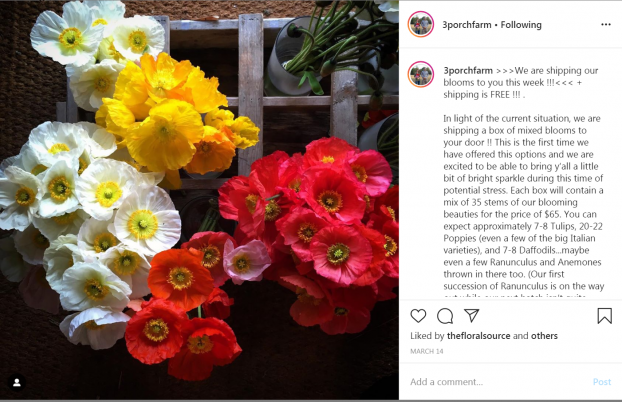
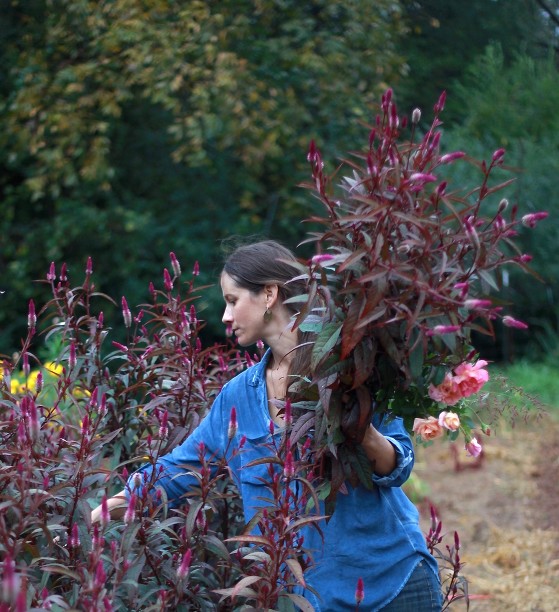
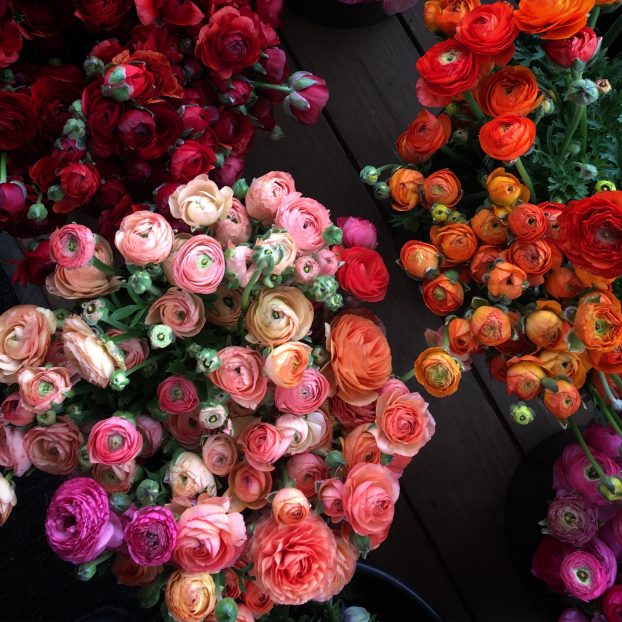
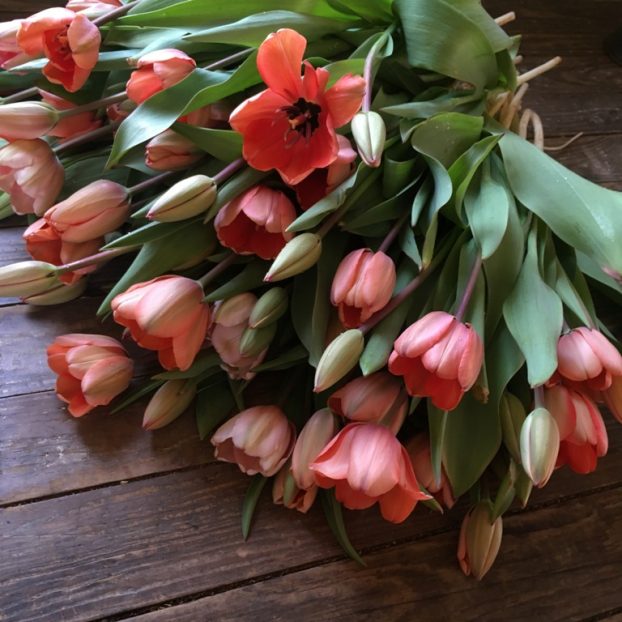
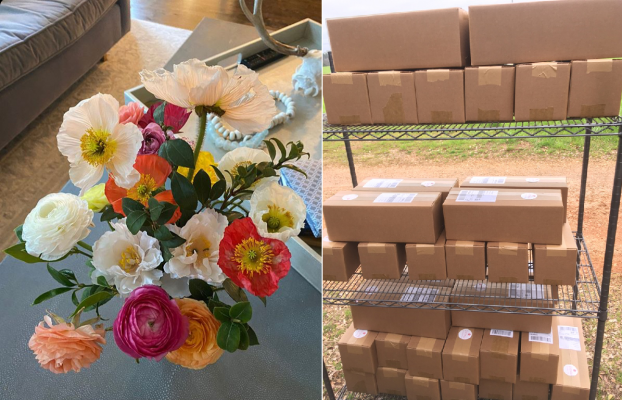
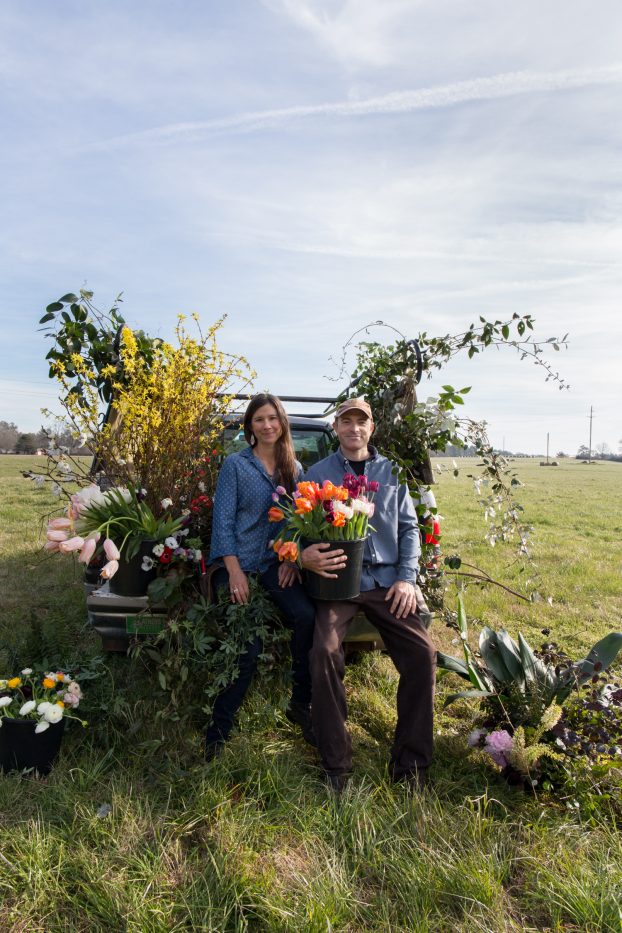
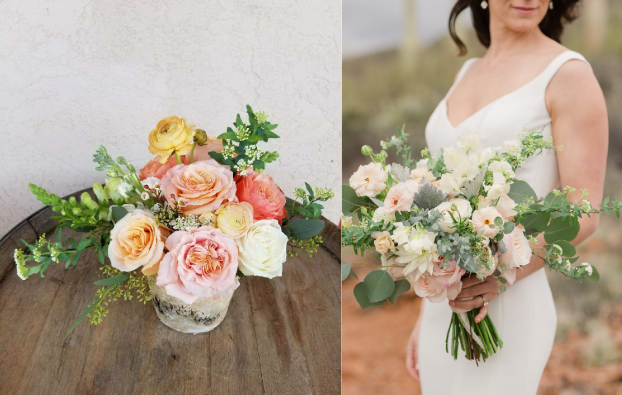
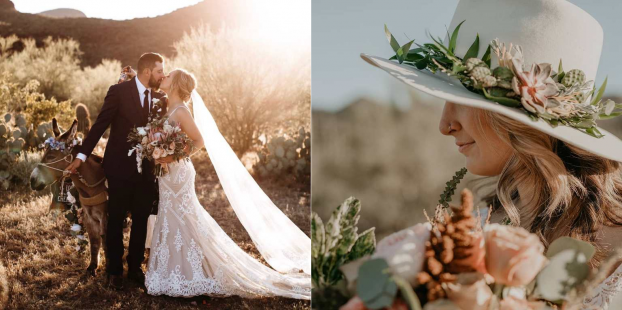
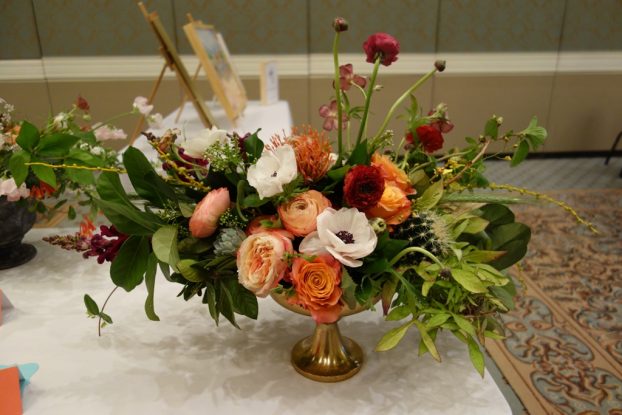
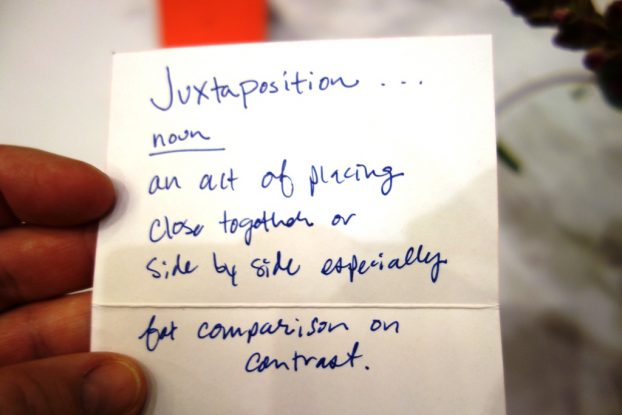
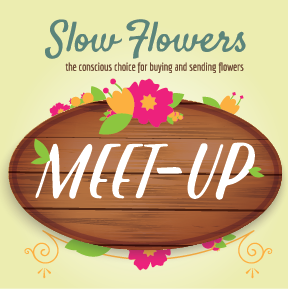 Thanks so much for joining me today as we heard from both a flower farmer and a florist in our Slow Flowers community! I don’t know about you, but things are sinking in this week that we are not in a temporary situation, but a long-term one with no end on the horizon. Some days are better than others.
Thanks so much for joining me today as we heard from both a flower farmer and a florist in our Slow Flowers community! I don’t know about you, but things are sinking in this week that we are not in a temporary situation, but a long-term one with no end on the horizon. Some days are better than others. 